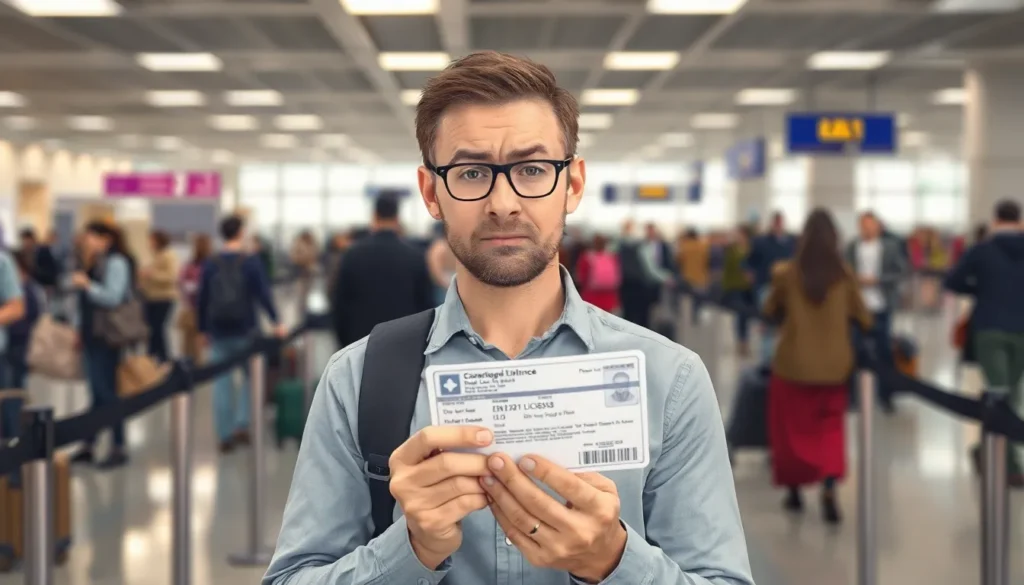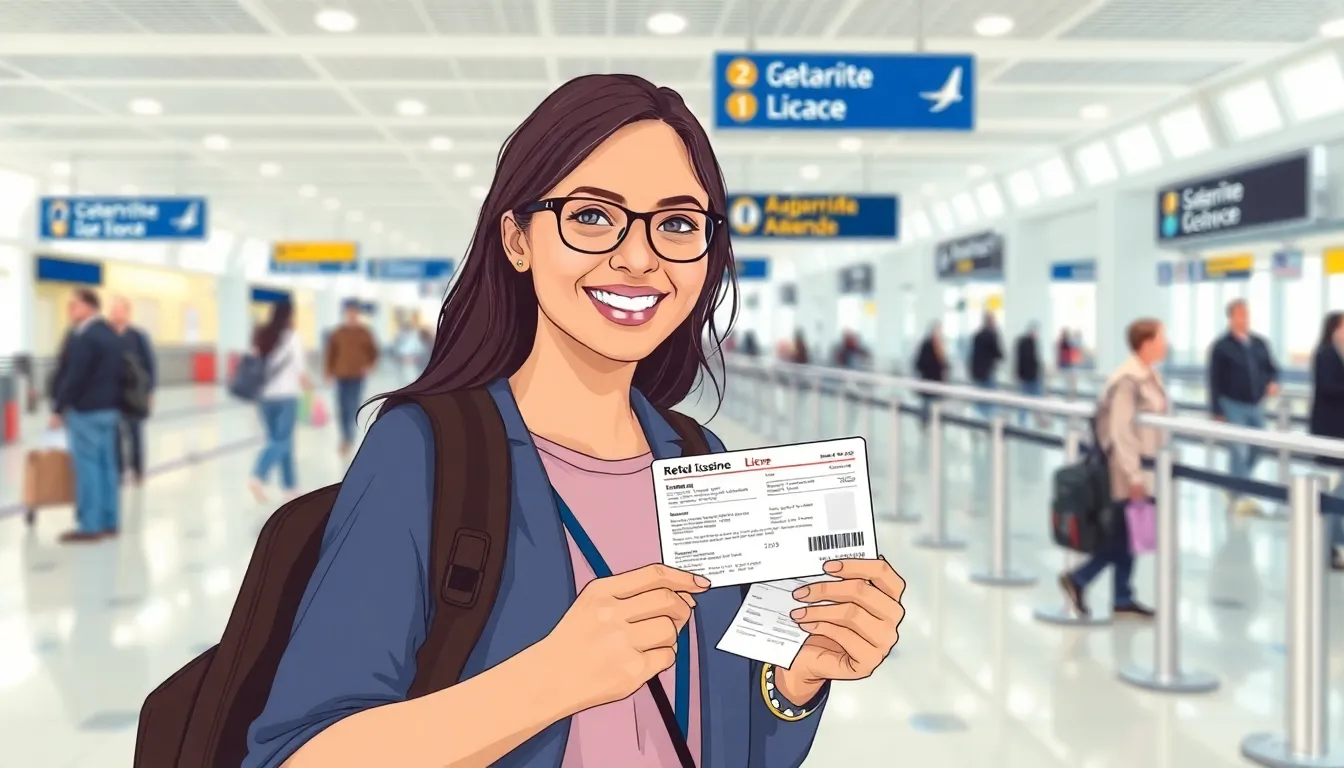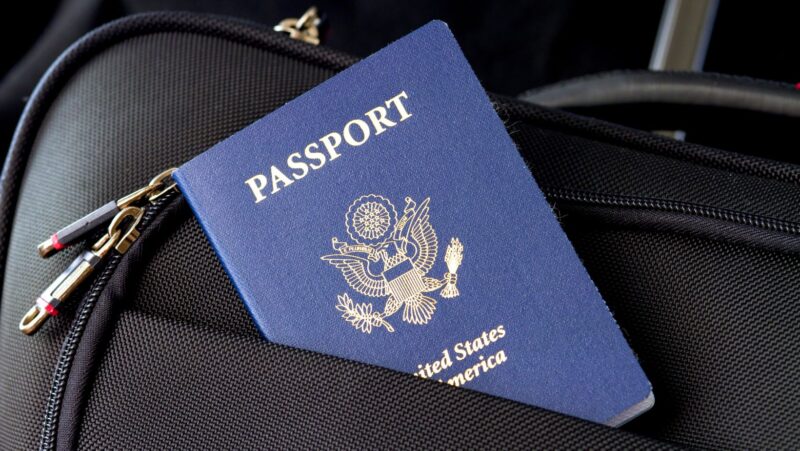
Traveling can feel like a circus act, juggling bags, boarding passes, and that ever-elusive valid ID. But what happens when that trusty identification card has seen better days and is now expired? Panic sets in, and the thought of missing out on a dream getaway is enough to make anyone break out in a cold sweat.
Can I Travel With An Expired ID
Travelers often face complications when their identification cards expire. Knowing the specifics can help avoid unnecessary stress.
What Constitutes an Expired ID?
An expired ID refers to any identification document that has surpassed its validity date. Expiration dates vary among different IDs, which applies to passports, driver’s licenses, and identification cards. An ID may still be physically present but holds no legal value if it’s expired. Government and transportation agencies frequently disregard expired IDs, which can lead to travel disruptions.
Common Types of Identification
Common forms of identification include driver’s licenses, state-issued IDs, and passports. Each serves specific purposes for domestic or international travel. While a driver’s license is suitable for domestic flights, a passport is essential for international travel. Military IDs and student IDs might also serve as valid identification, depending on the context. Not all IDs share the same expiration policies, so travelers should verify the validity of their documents ahead of time.
Traveling Domestically

Traveling within the United States requires valid identification. Expired IDs can complicate the travel process, so understanding ID requirements is crucial.
ID Requirements for Domestic Travel
Government agencies like the Transportation Security Administration (TSA) mandate that travelers present valid identification at airport security checkpoints. Acceptable forms include driver’s licenses, state-issued IDs, and passports. Most airlines require the same forms of ID when checking in for flights. It’s essential to note that some states allow individuals to fly with expired IDs for a limited time following their expiration. Checking specific airline policies can help minimize travel disruptions.
Alternatives to Expired IDs
Travelers without valid ID options might explore alternatives. Birth certificates and student identification cards can sometimes suffice, particularly for minors. Additionally, travelers can present documents such as a military ID or naturalization certificate. In emergencies, contacting the airline beforehand may provide solutions. Certain states issue temporary IDs as replacements, which offer a quick fix if one’s ID is lost. Ultimately, relying on multiple identification forms can facilitate smoother domestic travel.
Traveling Internationally
Traveling internationally with an expired ID presents significant obstacles. In most cases, countries require a valid passport for entry.
Passport vs. Other IDs
A passport serves as the primary identification for international travel, providing proof of citizenship. While other IDs, such as driver’s licenses and state issued IDs, might be acceptable for certain situations or countries, they typically lack the same universal recognition. Expired passports do not fulfill requirements for entry or re-entry. In specific circumstances, countries might accept passports that have expired recently, but this varies greatly. Having a valid passport is crucial, as some regions strictly enforce identification policies.
Country-Specific Regulations
Regulations differ by country regarding identification for travelers. Some nations allow entry with an expired passport under exceptional circumstances, while others strictly prohibit it. Research into each destination’s entry requirements before travel is essential. Countries may also present additional documentation needs, such as visas, which further complicate the situation for travelers without valid IDs. Immigration policies vary widely, underscoring the necessity of being informed. Checking with embassies or consulates provides the most accurate and up-to-date information on international travel IDs.
Consequences of Using an Expired ID
Traveling with an expired ID can lead to significant issues. Understanding these consequences is crucial for smooth travel experiences.
Potential Denial of Boarding
Airlines typically require valid IDs for boarding. Expired identifications often result in denial of boarding at airports. TSA agents enforce rules that strictly mandate presentation of current IDs at checkpoints. Travelers may find themselves unable to pass security measures without valid identification. Some airlines might allow a grace period for expired state IDs, but this varies by location. Anyone relying on an expired ID should check individual airline policies in advance to avoid disruptions.
Legal Implications
Using an expired ID can bring legal risks. Regulations vary by state, and some jurisdictions treat expired IDs as invalid for identification purposes. Authorities could issue fines or impose penalties for attempting to use expired documentation. Additionally, presenting an expired ID could complicate interactions with law enforcement, especially during identity checks. Awareness of these legal standards helps ensure compliance and prevents unnecessary complications during travel. Travelers must prioritize carrying valid identification to avoid potential legal issues.
Tips for Travelers with Expired IDs
Travelers facing expired IDs should prioritize understanding airline policies and communicating with authorities for solutions. Knowing your options reduces anxiety.
Checking Airline Policies
Airlines differ in their policies regarding expired identification. Some airlines might accept expired state-issued IDs under certain conditions, while others strictly enforce the requirement for valid IDs. Review the specific airline’s website or contact customer service directly for clarity. Knowing the rules helps travelers prepare for potential contingencies. Groups traveling together must ensure all members verify their IDs to prevent collective delays. Using social media platforms to inquire about ID policies can also yield quick responses.
Contacting Relevant Authorities
Reaching out to relevant authorities can provide invaluable assistance for travelers with expired IDs. The Transportation Security Administration (TSA) offers guidance on acceptable forms of ID and any exceptions. Contacting the local Department of Motor Vehicles (DMV) can yield information on renewing expired IDs quickly. In some cases, you’re encouraged to call embassies for international travel ID policies. This proactive approach enhances travel preparedness and mitigates potential disruptions during the journey. Prioritizing communication with these authorities ensures informed decisions regarding necessary travel credentials.
TSA Policies
Traveling with an expired ID can lead to unnecessary stress and complications. While some states may allow limited use of expired IDs for domestic travel, it’s crucial to verify specific airline and TSA policies beforehand. For international travel, the stakes are even higher as most countries require valid passports for entry.
To ensure a smooth journey, travelers should prioritize having valid identification and explore alternatives if needed. Proactive communication with airlines and relevant authorities can provide clarity and prevent potential issues. By staying informed and prepared, travelers can focus on enjoying their adventures without the worry of ID-related disruptions.












